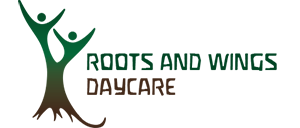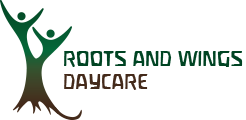PRESCHOOL CURRICULUM
![]()
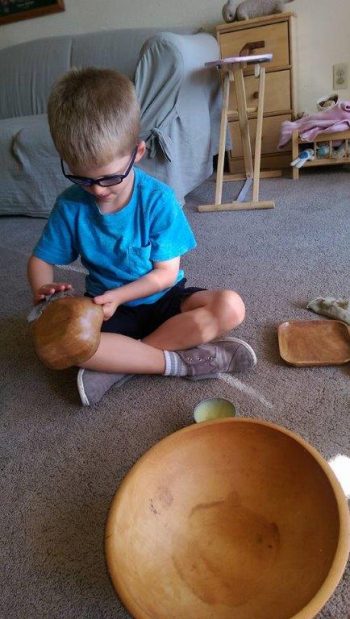
As well as providing nurturing childcare
I facilitate a nature-based, play-based, preschool curriculum, which has been influenced by the philosophies and practices of both Waldorf education and Reggio-Emilia. Waldorf pedagogy emphasizes the role of imagination in learning, striving to holistically integrate the intellectual, practical, and artistic development of children. The brilliant work of Rudolf Steiner, the founder of Waldorf schools, as well as current research, has proven that children are best served by allowing them to play and develop their imaginations in the preschool years. Delaying formal academics in early childhood actually helps children to excel at academics and thinking skills later in life. In the Reggio-Emilia approach, the teacher is considered a collaborator with the child and not just an instructor. I observe the children and facilitate activities that are often child-led. In both Waldorf and Reggio-Emilia, a beautiful environment with natural light and comfortable surroundings is important, and our playroom is sunny, welcoming, and calm.
Oral storytelling and puppetry, books, songs, art, activities, and projects all revolve around the current season. Concepts like alphabet, counting, numbers, shapes, colors, patterns, matching, and opposites are woven into each seasonal theme in a natural, un-hurried, way so that the children get the exposure they need to prepare them for Kindergarten.
The children here do not watch television, but instead are engaged in activities designed to strengthen and support future learning and develop good values. In alignment with Waldorf philosophy, I discourage “screen-based activities”, media images, Super Heroes, and violent play. I do allow opportunities for safe “power stories”. I provide esthetically pleasing, open-ended toys and natural components, rather than one-use electronic toys, and I prefer wooden toys over plastic.
Because I remember when my own children were in daycare and I felt very isolated from their lives there, I take time to provide a monthly email newsletter to keep parents informed. It’s more than a gift; it’s a main way that I communicate with my daycare families about important details. Included are the monthly theme, news, my plans & visions, reminders, kids’ quotes, curriculum updates, new resources, ECE classes, birthdays, new daycare children, daycare openings, recipes, and items I’d like parents to “save & donate” (like paper bags or empty jars.)
Families (parents and grandparents, too!) are encouraged to follow us on Facebook, where I post photos and videos of our activities and projects.
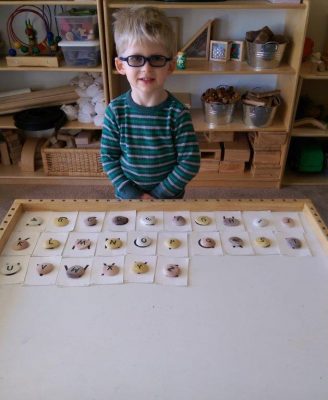
Our playroom has five learning centers:
- Blocks & Manipulatives
- Dramatic Play
- Literacy
- Music
- Science
Roots and Wings has a fully stocked art studio
Kids can choose from a variety of art supplies for independent work, or seasonal group projects.
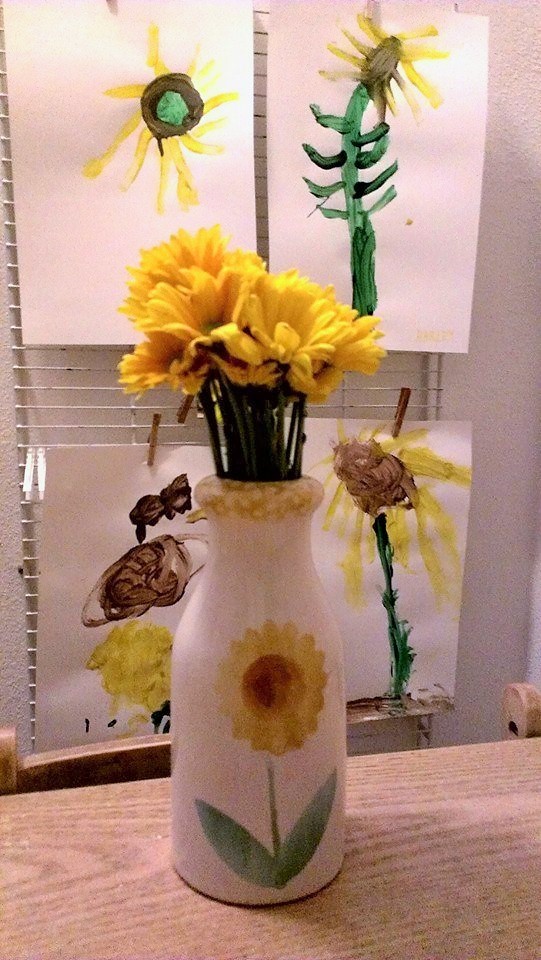
Home-made playdoh
I make home-made playdoh for each season which contains various flowers, spices, or glitter, and is scented with Young Living essential oils. Pumpkin Pie Playdoh is by far the favorite!
- Instruments
- Singing
- Drumming
- Dancing
- Classical, World, and Waldorf Music
- Rhythm, Beat, and Tempo
- Yoga
- Parachute
When I played Birds on a Wire for the children one day, this boy was so mesmerized by the sound and fascinated by the story behind its creation that he drew musical notes all by himself. It was magical to watch this precious little being appreciate this piece with his whole heart and soul. His mother later bought him the CD.
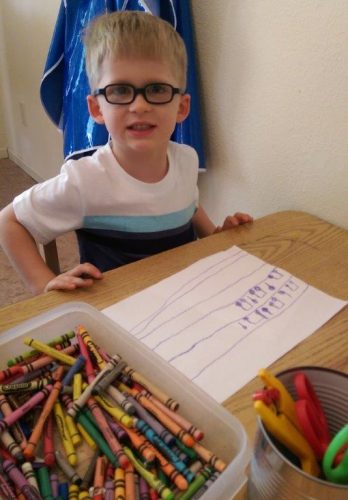
Listen to the haunting melody here, and read the interesting story behind its composition:

I provide theme-related resources and activities which offer kids a chance to experiment and develop fine motor skills.
- Potting soil, seeds, shovels, pots
- Rice, beans, lentils, scoops
- Stones and crystals
- Water, funnels, cups, tubes
- Sand, seashells, driftwood
- Corn meal, Indian corn, acorns, leaves
Practical Life Skills
have a deliberate, foundational, purpose and are an important part of my program as they are in both Waldorf and Montessori schools. These activities may seem basic and “non-academic”, but a child who is learning to wash dishes or fold napkins is accomplishing much more than it appears on the surface
- Learning through imitation
- Improving fine motor skills
- Demonstrating concentration
- Developing a sense of order and sequence
- Taking pride in their work
- Developing confidence and self-esteem
- Increasing independence
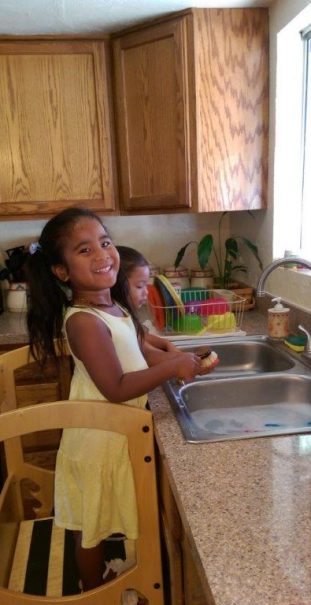
With the recent trend
toward introducing forced early academics, some may feel that learning Practical Skills is a waste of time. However, math, reading, and language all require the ability to focus, to complete a task with logical and sequential steps, to concentrate, to make intelligent choices, and to complete a task from start to finish. Through this “real life work”, children are laying a strong foundation for successful future learning, as well as becoming well-rounded individuals.
- Washing & drying dishes
- Sweeping
- Polishing
- Folding
- Cleaning
- Cooking
- Pouring
- Gardening
- Helping with laundry
The children who attend Roots and Wings
learn about the natural world by participating in various live science projects throughout the year:
- Butterflies
- Silkworms
- Ladybugs
- Mealworms
- Praying Mantis
- Fish, frogs, and snails
- Ant Farm
- Sprouting beans
- Dissecting owl pellets
- Hatching chicken eggs
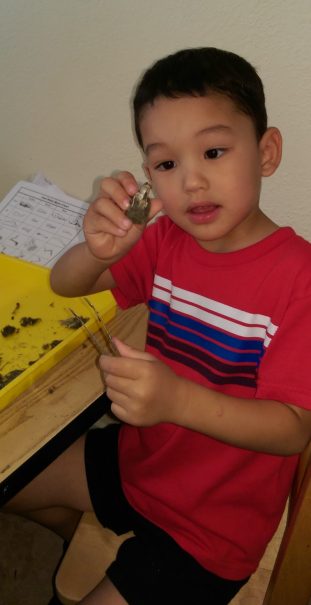
STEM (Science, Technology, Engineering, Mathematics) resources include
- Wide variety of building blocks
- Rubber ramps
- Wooden ball tracks
- Marble run set
- Pulleys and gears
- Sandbags
- Balance and weights
- Tools and levels
- Rocker board
- Sand, water, funnels, and tubes
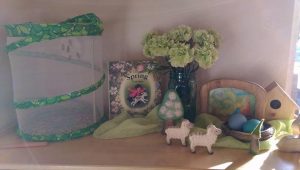
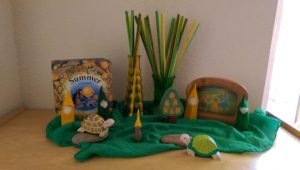
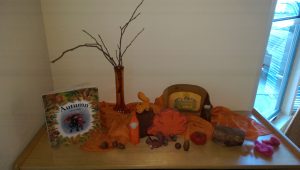
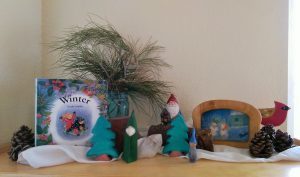
A standard feature in Waldorf classrooms
Our interactive Nature Table reflects the current season, and allows children to connect with the seasonal changes in the world around them.
